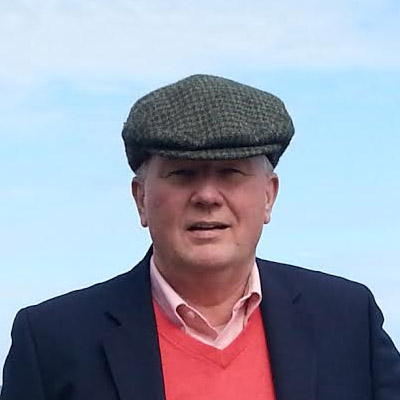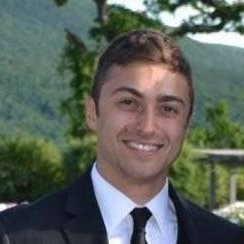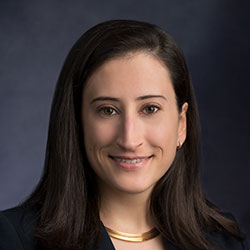
Name: Mary Kate Brennan
Class year: 2009
Position: Associate
Organization: Finnegan, Henderson, Farabow, Garrett & Dunner, LLP
Law School: Fordham University School of Law, J.D. 2012, LL.M. in Fashion Law 2017
1. In one sentence, what does your job entail?
My practice focuses on trademark, false advertising, and copyright litigation for a wide variety of clients and industries, including fashion, consumer goods, and media.
2. What planned and unplanned events connected you to your industry and your first employer after Holy Cross? How did you learn/decide it was a good fit for you?
Even before attending Holy Cross, I knew that I wanted to be an attorney. I did not, however, expect to become a fashion lawyer. While at Fordham Law School, I took Professor Susan Scafidi’s Fashion Law survey class. Professor Scafidi is the first professor ever to offer a course in Fashion Law, and she is internationally recognized for her leadership in establishing the field. After graduating and while studying for the bar exam in 2012, Professor Scafidi invited me to work with her at the Fashion Law Institute, the world’s first center dedicated to law and the business of fashion. From there, I continued to connect with industry members. Although my immediate next position did not involve fashion law – I joined the litigation department at The Port Authority of New York and New Jersey – I continued to network and stay involved in fashion. For example, I co-founded the Holy Cross in Fashion Alumni Affinity Group. This group has afforded me unparalleled opportunities to connect with Crusader fashion luminaries, such as Carolyn Risoli.
I love writing and thankfully, other people seem to think that I’m pretty good at it. Going into law school, I thought that I wanted to be a transactional attorney working on deals and contracts. While between my first and second years of law school, I interned with Time Inc.’s legal department. Notably, it is only because of Holy Cross’s Summer Internship Program that I was able get this position (going into my senior year, I interned at Sports Illustrated as part of Time Inc.’s editorial internship program). At Time Inc., I worked with the in-house litigation team and knew that the fast-paced nature of trial work was for me. I haven’t looked back since.
3. What were you involved in when you were on campus?
Class of 2009 Convocation Scholar; Co-Editor-in-Chief of the Holy Cross Journal of Law and Public Policy; Co-Chair of the Hanify-Howland Memorial Lecture Committee; News Editor and Columnist at The Crusader; Writing Tutor and Teacher’s Assistant; Co-Chair of the English Department Student Advisory Board; and Staff Member of the Campus Activity Board.
4. What was your major and how did it affect your career decisions?
I was an English major and minored in Art History. Both have had an enormous impact on my personal and professional life. As an English major, I dedicated my studies to close-readings and precise writing. While legal writing is quite different, the skills that I began to develop during undergrad have transferred nicely and set the groundwork for success. In terms of the substantive fashion law work, my art history background provided a wonderful foundation in fashion and fostered my overall interest in the arts and protecting them. On a personal note, I still love reading for fun and enjoy catching up with Professor Paige Reynolds about what new Irish novel I should pick up next (besides Sally Rooney).
5. What are one or two skills that you developed at Holy Cross that you use in your work?
I used to think it was cheesy, but the Jesuit motto of “Men and Women for Others” remains a touchstone. Little things matter. For example, I remember appreciating it when my Holy Cross classmates held doors open for me on campus or dropped off an iced coffee while I wrote a paper in Coolbeans. While I may be a formidable opponent in the courtroom, I strive to remain kind. In litigation, things can get heated quickly, and remembering the human element of work is critical. If you’re sort of jerk in the first semester of law school and don’t share your notes, people remember it years later. Having come from Holy Cross, I couldn’t imagine not being a collaborative classmate or co-worker. I think this makes me a better attorney and person.
6. What advice do you have for students on campus today?
Chart your own course. Do not become paralyzed trying to find a “dream” law school or job. Rather, think broadly and strategically when looking for the best opening that you can find now. Take that springboard and keep working hard, make meaningful connections and never lose sight of your long-terms goals. People can and will open doors for you, but you have to be the one to walk through them.











